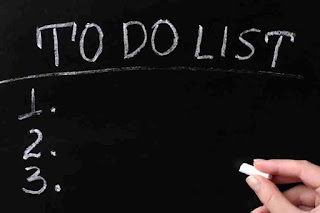This last school year was a whirlwind for our family. I don't know what we were thinking when we had our children four years apart (insert wink here - of course there was no plan!) so that one was graduating middle school while the other was graduating high school. That would probably be fine if we lived in the kind of school district where my son could just go on to his local high school. In Philadelphia, when children leave middle school, most apply to special admission high schools and private schools for the high school years. In the case of the special admission public schools, this means receiving target scores on standardized tests, writing essays, shadowing for a day, and often interviewing, presenting a project or auditioning, depending on the school mission (science, performing arts, etc.). In addition, the private schools require essays, special testing, shadowing, and student and parent interviews. Since my son decided to apply to both public and private schools, we were very busy during the application process. At the same time, my daughter was inundated with writing college essays (21 in total, as some of the schools required as many as 5 short answer essays), while at the same time balancing a very hard schedule (4 AP classes plus 2 additional academic courses).
Ultimately, my son has chosen to attend a small private Quaker school that was the closest in mission to the school he attended Pre-K-8. While he was accepted by and considered going to the large public special admission high school his sister attended, we all agreed it was too large for him and required far too many hours of homework. He also got into the well-regarded private Quaker high school in our neighborhood, but its team sports requirement concerned him as a non-athlete. Ultimately the smaller school he chose seemed like a better fit: he can choose between participating in sports or theater (or do both) and he will be in downtown Philadelphia, which will be an exciting change for him. The theater option was especially attractive to him as he had substantial roles in the middle school musical the last two years and discovered he has something of a talent for musical theater, specifically with comic roles. Additionally, the average class size of 15 students, versus closer to 33 in the public school, made the private school decision almost a no-brainer for a boy with attention challenges.
My son has come a long way in the last few years, but it is obvious that he benefits from smaller classes with teachers who know him and understand how he learns. I am happy for him but admit feeling a little sadness that he will not be attending a public high school, and also a little self-conscious that he will have the kind of education that can only be accessed by a privileged few.
Now I look ahead to both college and high school transitions in the months ahead with alternating feelings of excitement and anxiety. The summer of 2017 is truly a summer of change.







